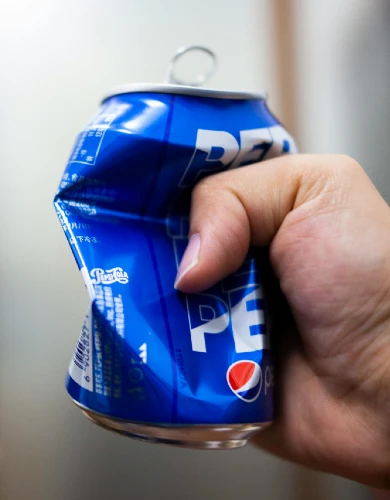Waste minimisation for businesses
Our team of waste experts helps UK businesses find the best commercial waste and recycling solutions.
But before you start arranging commercial waste collections, there is a key first step in the waste hierarchy: waste minimisation.
The best way to deal with commercial waste is to avoid producing it in the first place. This article explains how to minimise commercial waste.
What is business waste minimisation?
Business waste minimisation is an action taken to reduce the volume of commercial waste, even when that waste is recyclable.
Business waste minimisation is best explained through a few simple examples you might find in a typical office environment:
- Cancelling unwanted magazine subscriptions to prevent paper waste.
- Using mugs instead of disposable coffee cups.
- Removing the office printer and adopting digital solutions to prevent paper and ink cartridge waste.
The importance of minimising commercial waste
In this section, we highlight three key reasons why companies in the UK should focus on commercial waste minimisation.
Compliance
Commercial waste regulations in the UK require businesses to minimise waste before disposal.
Following these regulations ultimately reduces the environmental impacts of commercial waste and is a net benefit to everyone. Doing so also protects your business from penalties and fines from local authorities.
💡 Statutory Fines: In England and Wales, unlimited fines are available for non-compliance, while in Scotland and Northern Ireland, the statutory maximum is £5,000.
Reducing costs
There are three key reasons why minimising the amount of waste your business generates can ultimately reduce costs.
- Reducing inventory purchases – Waste minimisation strategies use materials more efficiently, leading to less frequent purchases of raw materials. For example, a restaurant that reduces portion size to reduce customer leftovers will also benefit from buying fewer ingredients.
- Reducing waste collection costs – Commercial waste collection costs depend on the volume and frequency of general waste and recyclables collections. By generating less waste through minimisation, your company can reduce both the frequency and volume of your waste collections, directly reducing waste collection costs.
- Reducing landfill tax – The government levies a tax on business waste disposed of at landfill sites. Minimising waste will help your company reduce its exposure to the landfill tax for businesses.
Improving corporate image
Waste minimisation significantly enhances a business’ corporate image by demonstrating a commitment to environmental sustainability and social responsibility.
Strong waste minimisation processes signal a dedication to preserving natural resources and reducing environmental footprints to customers, investors, and employees.
Waste minimisation strategies for business
Waste minimisation strategies can be as simple as replacing single-use coffee cups with mugs or as complicated as reprocessing nuclear waste to generate electricity.
Prevention strategies must be tailored to your business’s operations.
To demonstrate, our experts have highlighted three examples of waste minimisation strategies used by well-known British companies:
Britvic UK
Britvic is a renowned soft drinks manufacturer that has achieved significant savings by reducing syrup waste in its production facility near Birmingham.
The production lines were reviewed and modified to minimise instances of syrup contamination and reduce the unscheduled emptying and cleaning of syrup tanks.
Britvic prevented 156 tonnes of syrup effluent each year, significantly reducing waste disposal costs.
Ocado
Ocado is a delivery-only supermarket that was built with efficiency and low waste from the outset to compete with established competitors.
The company has practically zero commercial food waste, with only 1 in 6,000 products going to waste. This allows them to earn more from their stock while avoiding the larger commercial waste collection costs their competitors must pay.
Co-op Group
By transforming its staff’s work routines at its Manchester headquarters, the Co-op Group achieved a 71% reduction in paper use.
They encouraged flexible, digital-focused work practices, leading to significant savings in business waste collection costs. This allowed them to reduce the scale of their new building by one floor, saving £20 million in rental costs.
The future of waste minimisation in the UK
The latest Environmental Act 2021 brings waste prevention into UK law, compelling all UK governments to update their regulations and policies to meet these new legal requirements.
The Act is shifting accountability to businesses across the entire supply chain, from manufacturers to recycling facilities, and improving the regulators’ abilities to enforce any regulations.
For example, Extended Producer Responsibilities (EPR) is being introduced. These require manufacturers and producers to ensure their goods contribute to a circular economy with minimal waste.
Finally, they are expected to drive innovation in product and packaging design.
Enhanced enforcement of regulations will also encourage businesses to adopt waste-reducing practices or face fines for not doing so.
Finally, the Act will likely stimulate advancements in recycling technologies and the development of new markets for recycled materials, further supporting the UK’s journey towards a more sustainable future.
Technology and waste minimisation strategies
There is huge scope for technology to reduce waste in commercial operations. Here are some great examples:
- 3D Printing: This technology allows precise production of components, reducing material wastage by building objects layer by layer rather than cutting away excess material.
- IoT and Smart Sensors: Internet of Things (IoT) devices and smart sensors can monitor and manage resource usage in real-time, identifying inefficiencies and enabling immediate corrective actions to minimise waste.
- Supply Chain Management Software: These systems optimise stock levels and reduce over-ordering, leading to less perishable goods wastage and minimising excess inventory.
Business waste minimisation – FAQs
Our business waste experts answer commonly asked questions on waste minimisation and reduction for businesses in the UK.
Is there government help for businesses who want to reduce waste?
Yes, the UK government offers various support programs and incentives for businesses to reduce waste. These include grants, tax reliefs, and technical support for implementing environmentally friendly practices.
Find out if your business is eligible for any of these through the following resources:

